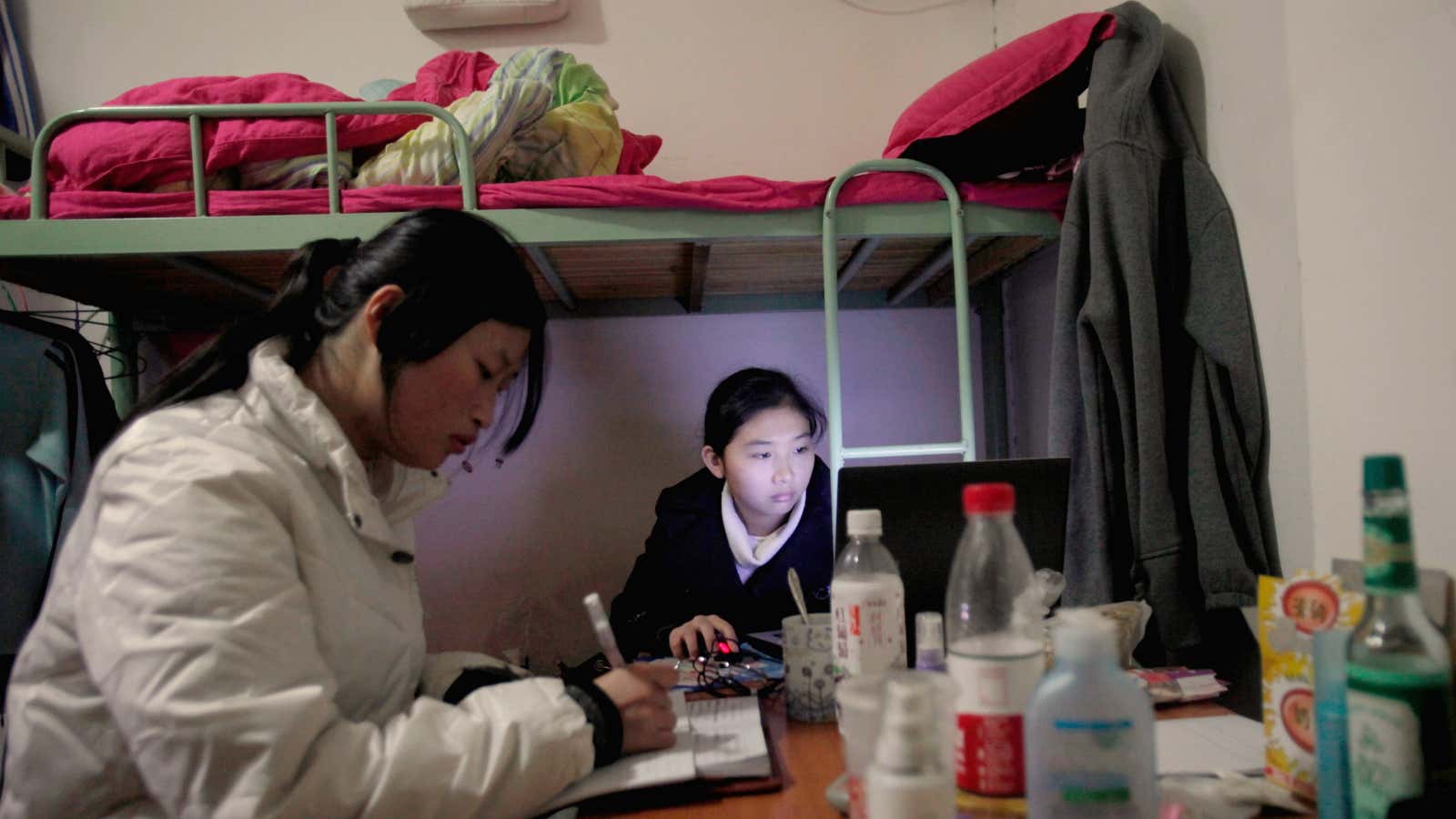Four Chinese students at the University of Wisconsin-Madison, where Chinese enrollment has grown 356% in the last decade, have set out to educate their American peers about themselves. They’ve taken to YouTube to explain the social misunderstandings that block many foreign students—particularly those from Asia—from integrating with the slang-speaking, booze-guzzling Americans.
International students are flocking to US universities in greater numbers, particularly from Asia, but the cultural barriers are as sturdy as ever. Since 2007, the number of Chinese students in the US has grown by around one-fifth or more each year. In the 2011/2012 academic year, 194,029 students from China were enrolled in higher education in the US—an increase of 23% from the year before, according to the Institute of International Education.
But they still have a hard time fitting into American culture, and this “adjustment fatigue” can lead to isolation. A recent report showed that one in four Chinese students studying at Ivy League universities drop out before graduation. Many of those who do graduate return to China after university; a third of those who do cited poor social skills as the reason.
The most popular video on the students’ YouTube channel, with 40,000-plus views, explains why Chinese students prefer to speak Mandarin instead of English: Aside from the obvious reason—that it’s their native language—Chinese schools teach pupils English to pass tests, not chat conversationally. Words like “peeps,” “chillax,” “fo’ real” and “fo’ sho” don’t make the syllabus, and can make Chinese students feel alienated when talking with Americans.
Other videos discuss “Why Chinese Students Don’t Party,” (they place a higher value on studying, and are “treated like this alien person who doesn’t know how to have fun” in drink-fueled social situations), “Pretty Chinese Women,” (in which American and Chinese male students discuss their differing concepts of beauty), and “Chinese Names,” (whose tricky pronunciation can hinder the forming of friendships).
“We’re not this alien ‘other’ group,” Cecilia Miao, one of the channel’s founders, told the Wisconsin State Journal. “We should try to celebrate differences, not ignore it.”
